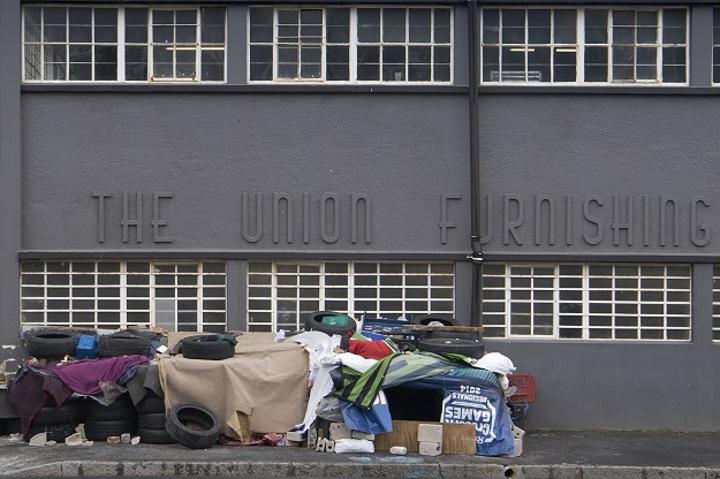Africa-Press – South-Africa. The Supreme Court of Appeal (SCA) ruled that the City of Cape Town must provide emergency housing to people being evicted or displaced – but the City it is not obligated to house them in a specific area, but it should be as close as possible to where they used to live.
This judgment relates to a long-standing case between the Woodstock Hub developers, the City of Cape Town and residents of erf 10626 in Cape Town’s centrally-located Bromwell Street.
The property was sold to the Woodstock Hub developers in 2016 by brothers Reza and Erefaan Syms, and eviction notices were served on the residents.
The problem was that the residents could not afford to re-enter the rental market in or very close to where they had lived in the price range they had previously paid. This was between R300 to R2 000 a month at the time.
The City of Cape Town was brought into the situation eventually, and it offered the residents temporary emergency housing in the dustbowl of Wolwerivier, about 30km outside the city, or in Philippi, an impoverished suburb outside the CBD.
The residents objected and said they needed to remain in their familiar Woodstock and Salt River areas for the sake of schools, doctors, friends, and family circles.
They were also annoyed by being pushed out of the city, which was what had happened to generations of black residents during apartheid.
They argued that their emergency accommodation should be in the same area they used to live in, given that they could see a lot of vacant land which could be used.
However, the municipality said the land was either unsuitable or something else was already planned for the sites, and the extremely high rates and costs at those sites would eat into the housing budget. The City also said it had many complex housing projects already in motion, with beneficiaries lined up.
When the residents heard that the City was going to overhaul its housing policy to dismantle apartheid-era planning, and use well-located sites for transitional housing and social housing, the group pointed out that they should have been included in those projects.
The City argued that these projects were also already spoken for, and if they let them have the units instead, it would be unfair to people already waiting for one.
The City pointed out that emergency accommodation was meant to be temporary, and the social housing units were intended for permanent recipients.
When the group took the matter to the Western Cape High Court, it was ruled that they should indeed get accommodation close to where they lived and that the City of Cape Town had acted unconstitutionally by saying no.
However, on appeal, the SCA ruled that the City had not acted in an unconstitutional way, but said it should provide the emergency accommodation as close as possible to the affected Bromwell Street residents.
However, this does not have to be at a specific place.
“The Constitution does not guarantee a person a right to housing at government expense at the locality of his or her choice,” the judgment read.
The date on which the occupiers must vacate the property was extended to 30 June 2023.
Residents, represented by Ndifuna Ukwazi Law Centre, had repeatedly argued that the way in which the City provided emergency accommodation in far-flung, under-resourced and under-serviced areas compounded the vulnerability of the poorest and perpetuated spatial apartheid.
In a statement, Disha Govender, head of the Ndifuna Ukwazi Law Centre and attorney for the Bromwell families, said: “The implementation of the City’s emergency housing programme continues to displace poor black (African, coloured and Indian) people from well-located areas like Woodstock, Salt River and the inner-city to relocation camps where people languish in poverty, and in unfamiliar and sometimes dangerous conditions.
“It replicates spatial apartheid and in the specific context of the state’s failure to provide affordable housing, check exorbitant rentals and properly plan for people facing evictions into homelessness, this is plainly unjust and retrogressive of the rights to housing and equitable access to land.”
The City responded to the judgment by saying that due to a scarcity of land and prohibitive costs, it had a policy of delivering affordable social rental housing on the limited municipal-owned land available to it for housing within central Cape Town.
“This land is not earmarked for temporary emergency housing as the applicants demanded.
“The City will now determine the number of occupants remaining at Bromwell Street, including their socio-economic conditions, before further engagements on alternative emergency accommodation.”
The City’s appeal was upheld.
For More News And Analysis About South-Africa Follow Africa-Press






